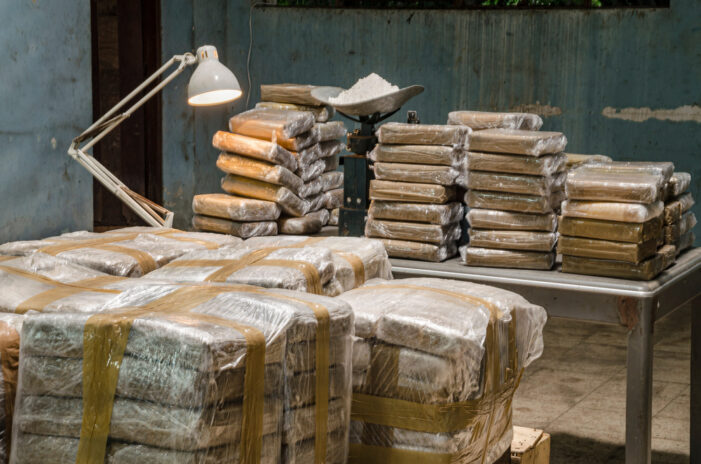By Jamaica Observer
United States President Joe Biden has named several Caribbean countries among major drug transit or major illicit drug-producing countries for Fiscal Year 2024.
In a White House memorandum, Biden on Friday listed The Bahamas, Belize, the Dominican Republic, Haiti and Jamaica among countries world-wide as major transit or major illicit drug-producing countries.
Other countries identified are Afghanistan, Bolivia, Burma, the People’s Republic of China (PRC), Colombia, Costa Rica, Ecuador, El Salvador, Guatemala, Honduras, India, Laos, Mexico, Nicaragua, Pakistan, Panama, Peru and Venezuela
“A country’s presence on the foregoing list is not necessarily a reflection of its government’s counterdrug efforts or level of cooperation with the United States,” Biden said.
“Consistent with the statutory definition of a major drug transit or major illicit drug producing country set forth in sections 481(e)(2) and 481(e)(5) of the Foreign Assistance Act of 1961, as amended (Public Law 87-195) (FAA), the reason countries are placed on the list is the combination of geographic, commercial, and economic factors that allow drugs to be transited or produced, even if a government has engaged in robust and diligent narcotics control and law enforcement measures,” he added.
The US President said the James M. Inhofe National Defense Authorization Act for Fiscal Year 2023 (Public Law 117-263) amended the definition of major drug source countries to include source countries of precursor chemicals used to produce illicit drugs significantly affecting the United States.
He said for countries with large chemical and pharmaceutical industries, preventing precursor chemicals from being diverted to the production of illicit drugs is “a particularly difficult challenge, including for the United States and other countries with strict regulatory regimes to prevent diversion.”
Biden said the PRC has been identified as a major source country due to this change in legislation.
“The United States strongly urges the PRC and other chemical source countries to tighten chemical supply chains and prevent diversion,” he said.
Pursuant to section 706(2)(A) of the FRAA, Biden designated Bolivia, Burma and Venezuela as “having failed demonstrably during the previous 12 months to both adhere to their obligations under the international counternarcotics agreements and to take the measures required by section 489(a)(1) of the FAA.”
He said included with this determination are justifications for the designations of Bolivia, Burma and Venezuela, as required by section 706(2)(B) of the FRAA.
Biden has also determined, in accordance with provisions of section 706(3)(A) of the FRAA, that United States programs that support Bolivia, Burma and Venezuela are “vital to the national interests of the United States.”
“The vast majority of illicit drugs causing the most damage in the United States originate from beyond our borders, and our most effective means of reducing the availability of these drugs is to expand and improve our cooperation with international partners,” he said, adding that “The political commitment of our international partners remains critical to achieving success against illicit drug threats.”
With key partners in South America, Biden said the United States will continue to support ongoing efforts to reduce coca cultivation and cocaine production, expand access to justice, and promote alternative livelihoods.
He said Colombia has historically been a strong partner in the fight against the drug trade.



